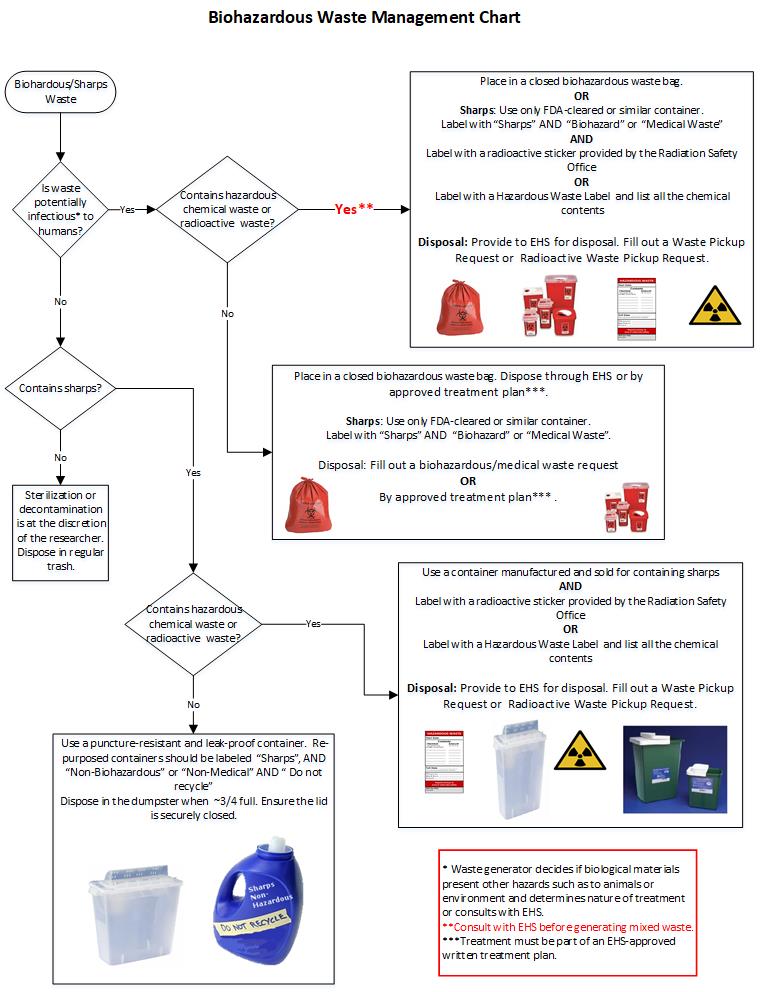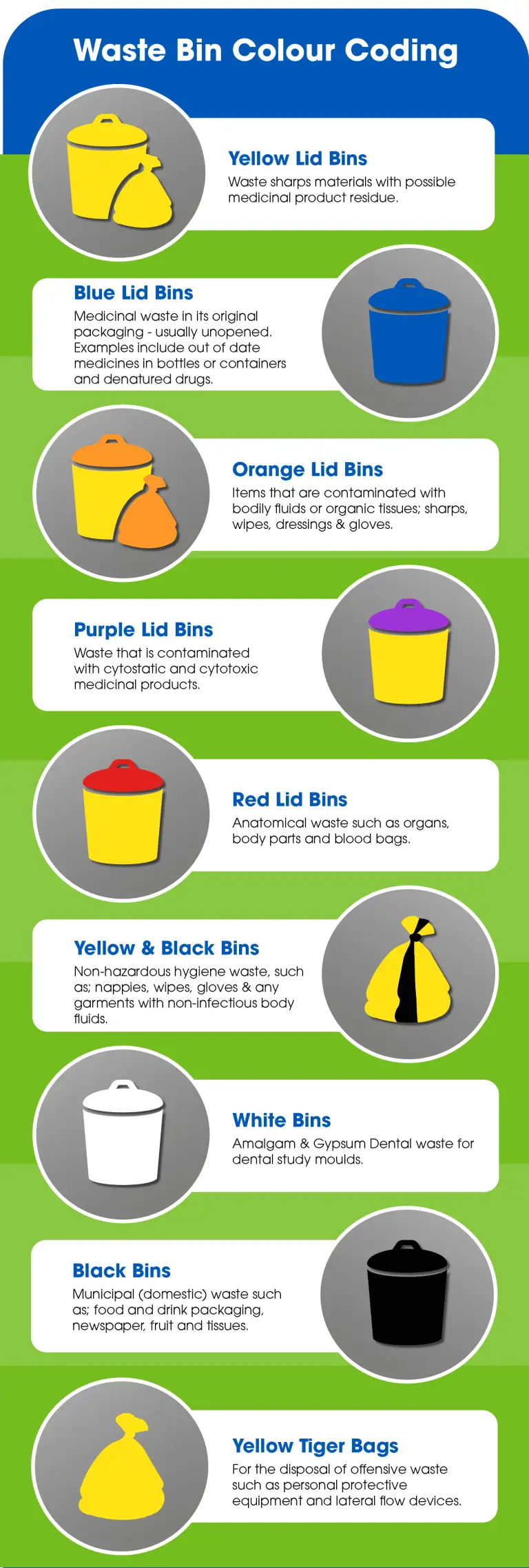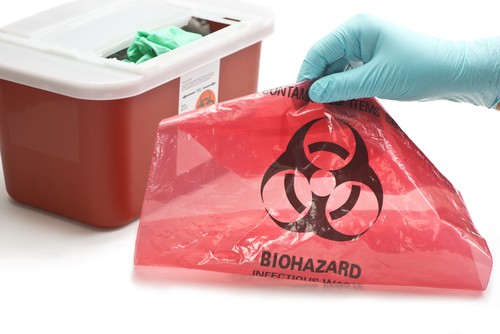Making Sure Safe Handling and Disposal of Medical Waste
Ensuring safe handling and disposal of medical waste is of paramount significance in medical care setups. Inappropriate management of medical waste can pose considerable dangers to the atmosphere, public health and wellness, and medical care employees. In this introduction, we will certainly check out the value of proper clinical waste monitoring, the threats connected with inappropriate handling and disposal, as well as the guidelines and techniques that can be implemented to guarantee its risk-free disposal.
Value of Appropriate Medical Waste Monitoring
Appropriate medical waste management is of utmost relevance in ensuring the security and well-being of health care specialists, individuals, and the basic public. Medical waste describes any kind of waste produced by healthcare centers during the medical diagnosis, therapy, or immunization of pets or people. This waste can position serious wellness risks otherwise taken care of and disposed of effectively.
One of the key reasons why proper clinical waste administration is essential is to avoid the spread of transmittable diseases. Clinical waste, such as used needles, polluted dressings, and organic materials, can bring damaging virus. Otherwise managed and dealt with properly, these microorganisms can be transmitted to health care employees, people, waste trainers, and even the public, bring about the potential episode of illness.
In addition, proper medical waste administration aids secure the setting - medical waste disposal service. Clinical waste contains harmful materials, including chemicals, pharmaceuticals, and contaminated materials. When not taken care of properly, these compounds can infect soil, water bodies, and the air, positioning a considerable danger to communities and public health and wellness
In addition, reliable clinical waste monitoring ensures compliance with international criteria and regional policies. Governments and regulative bodies have established guidelines and protocols to make certain the secure handling, storage, transport, and disposal of clinical waste. Complying with these guidelines is vital to stay clear of lawful repercussions and maintain the reputation and reputation of healthcare centers.
Threats of Improper Handling and Disposal

If medical waste is not properly disposed of,Clients can likewise be revealed to these transmittable illness. For example, if infected needles or various other sharps are not disposed of in designated puncture-proof containers, they might accidentally prick patients, resulting in prospective infections. Moreover, if medical waste is not segregated correctly, there is a danger of cross-contamination between various sorts of waste, further increasing the chances of disease transmission.
Inappropriate disposal of clinical waste can additionally have destructive results on the atmosphere and the basic public. If medical waste is not dealt with and gotten rid of properly, it can contaminate water resources, dirt, and air, leading to the spread of conditions and toxins. This can have long-lasting repercussions on ecological communities and public health and wellness.
Guidelines for Safe Handling of Medical Waste
Executing effective procedures for the risk-free handling of clinical waste is necessary in making certain the security of healthcare specialists, clients, and the public. These guidelines are essential in reducing the dangers connected with the handling and disposal of clinical waste, such as infections, injuries, and ecological pollution.
Most importantly, health care centers must establish a thorough waste management plan that abides by neighborhood, nationwide, and international policies. This strategy ought to include clear directions on waste partition, packaging, transport, storage, and labeling. It is essential to separate different kinds of waste, such as sharps, transmittable materials, pharmaceuticals, and non-hazardous waste, to stop cross-contamination and promote risk-free disposal.
Furthermore, health care employees should get thorough training on proper waste handling techniques. They ought to be enlightened on the possible hazards of clinical waste, the ideal use personal protective equipment (PPE), and the correct treatments for dealing with, delivering, and taking care of various sorts of waste.
Moreover, health care facilities must frequently keep an eye on and examine their waste monitoring practices to guarantee compliance with guidelines. This consists of performing normal assessments, evaluating waste handling treatments, and offering feedback and training to personnel.
Efficient Strategies for Waste Disposal
To guarantee the risk-free handling and disposal of medical waste, it is important to employ effective approaches for waste disposal. Clinical waste can pose significant threats to public health and the environment otherwise taken care of and gotten rid of appropriately. Medical care centers and waste monitoring organizations should apply suitable strategies to reduce these dangers.
One effective technique for waste disposal is partition. It entails separating different sorts of medical waste based upon their attributes. Partition allows for the appropriate therapy and disposal of each waste classification, lowering the potential for contamination or harm. Medical care facilities ought to provide clear guidelines and training to team member on how to set apart waste correctly.

Additionally, medical care centers ought to work together with certified waste monitoring firms to make sure appropriate disposal of medical waste. These companies have the experience and equipment called for to securely deal with and dispose of clinical waste see this site in conformity with regulations and best methods.
Training and Education for Healthcare Professionals
Health care experts play a crucial function in making certain the safe handling and disposal of medical waste with extensive training and education and learning. It is crucial for doctor to have a deep understanding of the possible dangers related to clinical waste and the appropriate protocols for its management. By obtaining proper training, medical care professionals can decrease the prospective transmission of infectious conditions, avoid ecological contamination, and safeguard both themselves and the public.

In addition, training programs ought to stress the use of personal protective tools (PPE) and appropriate hand hygiene methods when handling clinical waste. medical waste removal service. Health care experts must understand exactly how to properly dispose and utilize of PPE to safeguard themselves from prospective direct exposure to harmful products. They must likewise be informed on the significance of regular handwashing and the appropriate use hand sanitizers to reduce the spread of contagious illness
Continuing education and routine updates on medical waste management practices are important for health care experts. As standards and laws evolve, it is vital to keep doctor educated regarding any type of changes in procedures and ideal methods. This will certainly guarantee that they remain updated and maintain a high standard of security in taking care of and disposing of clinical waste.
Final Thought
In verdict, appropriate handling and disposal of medical waste is essential to ensure the safety of health care professionals, clients, and the setting. By adhering to these methods, we can alleviate the potential dangers linked with clinical waste.
Clinical waste refers to any waste created by medical care centers throughout the diagnosis, therapy, or immunization of human beings or animals. If clinical waste is not set apart properly, there is a risk of cross-contamination in between different kinds of waste, more enhancing the opportunities of condition transmission.
It is important to divide different kinds of waste, such as sharps, contagious materials, pharmaceuticals, and non-hazardous waste, to stop cross-contamination and promote secure disposal. WasteX Medical Waste Disposal.
To make certain the safe handling and disposal of clinical waste, it is vital to use reliable methods for waste disposal. Additionally, medical care facilities must establish a routine waste collection and transport schedule to protect against waste accumulation and lessen the risk of mishaps or contamination.